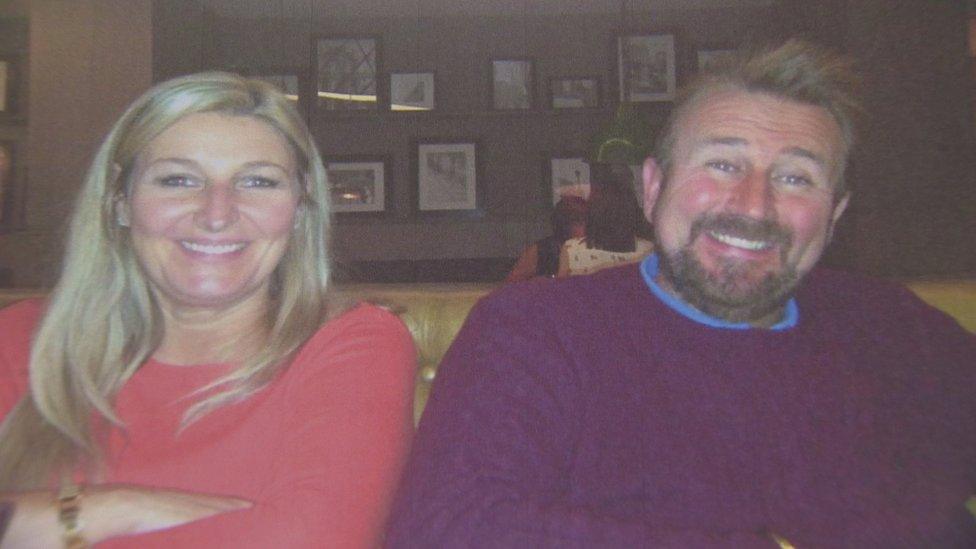Should there be juries in fraud cases?
- Published
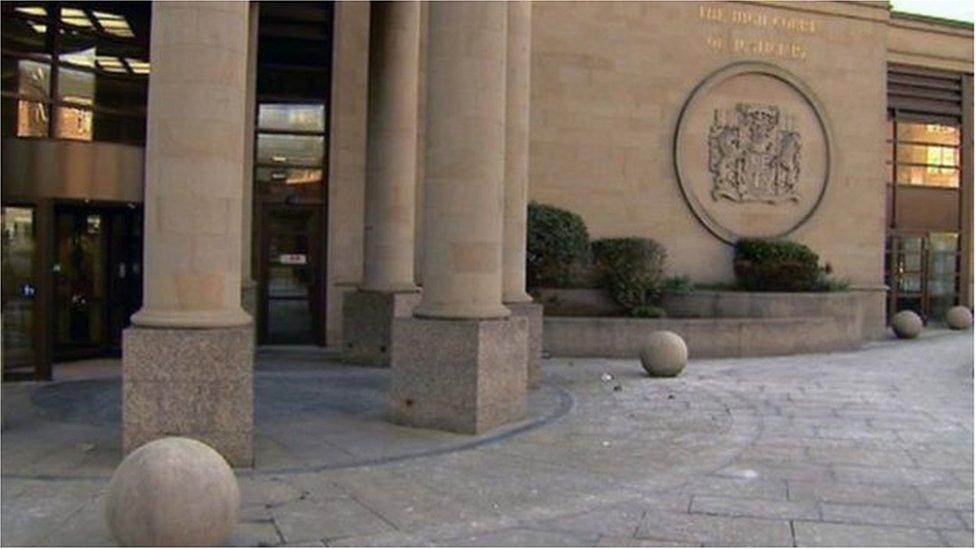
The jury sat at the High Court in Glasgow for 20 months
A fraud trial has just concluded at the High Court in Glasgow after 20 months, raising questions about whether juries should be used in such complex cases.
The trial of Edwin McLaren began in September 2015 with the 15 jurors needed for a Scottish criminal trial and ended more than a year and a half later with just 12.
There were concerns that if they had lost another juror the case would have collapsed.
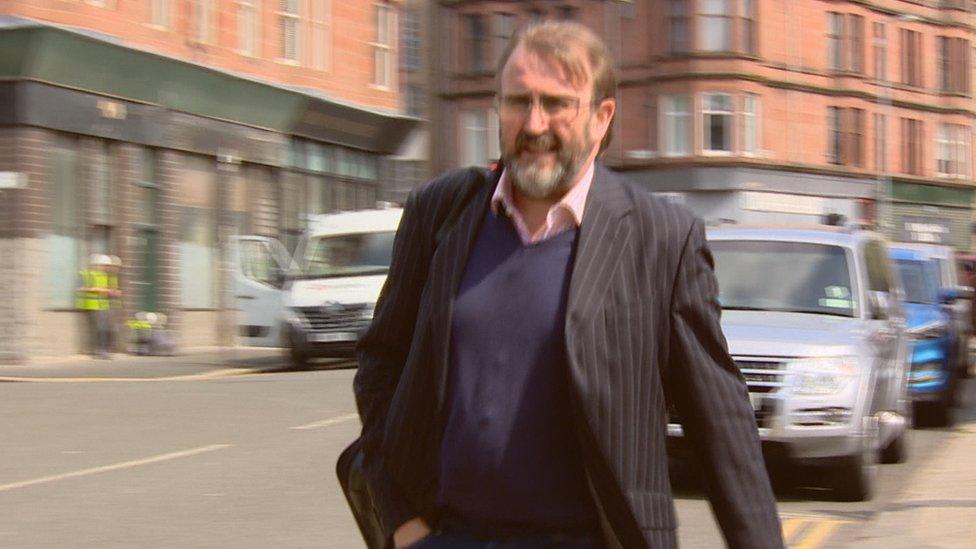
Edwin McLaren was charged with fraud in a trial that lasted 20 months
That is what happened with another mammoth fraud case at the Old Bailey in London in 2005.
The London Underground Jubilee Line case heard evidence for about 140 days over a 21-month period before one juror "went on strike".
The court had already lost two jurors when one became pregnant and another was arrested for benefit fraud.
After missing work for almost two years one juror became aware that he owed thousands in pension contributions, external, which his employer had not been liable for while he was on the jury.
He refused to take part in the jury until his financial situation was sorted out, claiming loss of earnings threatened his ability to pay Oxford university fees for a course he was due to start.
The Attorney General in England at the time, Lord Goldsmith, brought forward legislation to allow complex fraud trials to be held without juries.
It was defeated in the Lords two years later with peers arguing that trial by jury was a bedrock of the criminal justice system.
The UK government had said major trials put too much pressure on jurors.
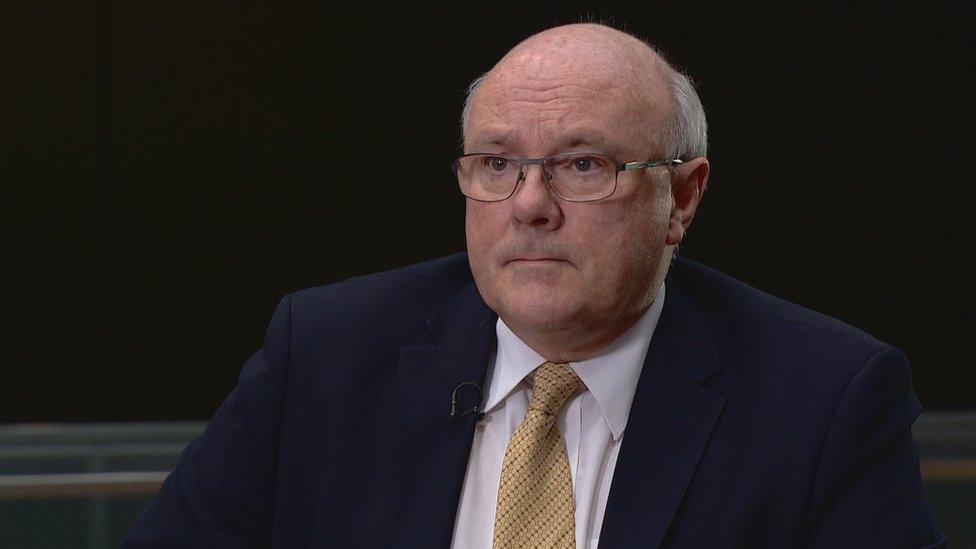
Douglas Mill said everyone in fraud cases was an expert apart from the jury
"The use of a jury is a bulwark of not just Scottish justice but British justice and I would say there should be a presumption that the jury system continues," Douglas Mill, former chief executive of the Law Society of Scotland, told the BBC.
But Mr Mill added that fraud was now so "specialised" that the police, the Crown office prosecutors and defence lawyers all had experts who dealt only with such cases.
He said the only people who were not specialists were the jury.
"It is left to 15 very lay people who are being asked to assimilate vast numbers of documents over an endless number of days," he said.
"Is that in the interests of justice? Big question."
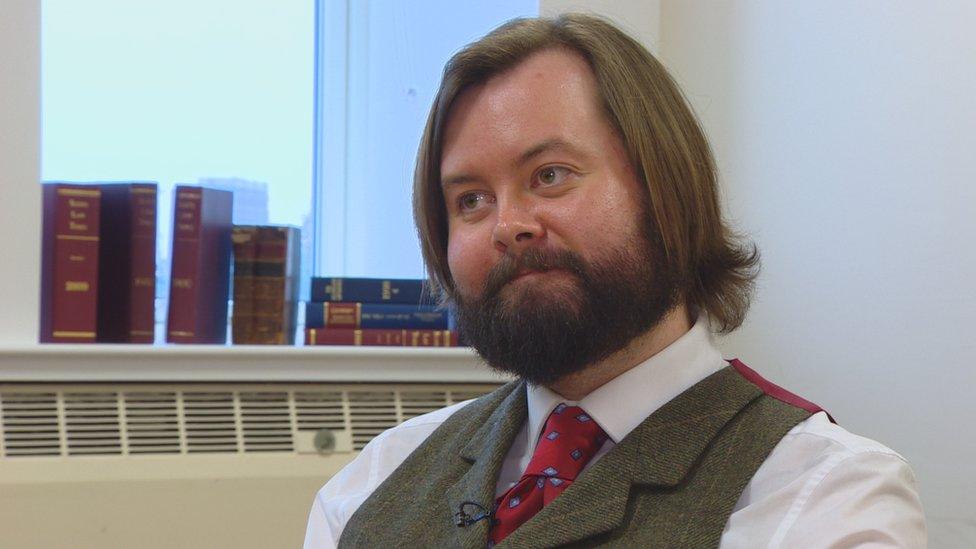
Andrew Tickell said fraud cases were always complicated
Law lecturer Andrew Tickell also said fraud cases were complex and difficult to follow.
In the case of Edwin McLaren, the indictment carried 29 separate charges and it was the Crown's job to prove every one.
This required a large number of witnesses and mountains of documents.
The Glasgow Caledonian University law lecturer said: "If the Crown is going to bring forward a mega case then it really has to bring forward quite substantial evidence to buttress that claim.
"Juries have to decide on the guilt in the cases and so have to sit through many months of evidence. That has real challenges for them and challenges for the justice system as a whole.
"Certainly in terms of very serious cases involving complicated financial concepts and instruments that the ordinary person might not be familiar with then you might well ask 'is it right for 15 ordinary members of the public to spend a year of their life trying to get on top of these questions?'
"Is this most cost effective, and effective generally, way of delivering justice in these cases?"
Mr Tickell put forward the alternative of an expert bench of judges who know the area and are able to identify fraud when they see it.
But he said: "On the other hand, some people would say having a jury of your peers deciding your fate in the most serious of cases, with massive prison sentences at the end of the line if you are convicted, that's a matter of principle.
"We apply that in murder cases, in very serious fraud cases some people would argue we should maintain that safeguard as well."
He added: "I would imagine the Scottish government and a range of politicians may look at this case and say 'is this value for money'?
"Is it the best way to deliver justice? I'm not sure on either of those two tests we are delivering that in Scotland today."
- Published16 May 2017
